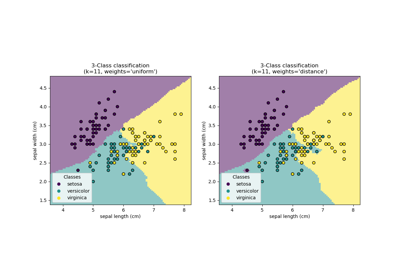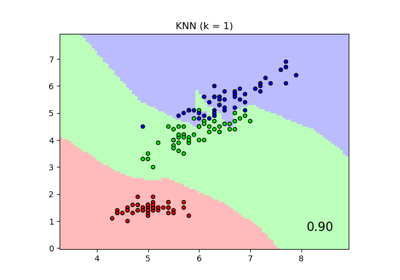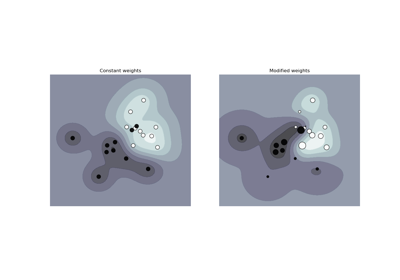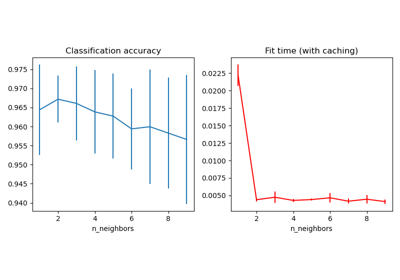注意
转到末尾以下载完整示例代码或通过 JupyterLite 或 Binder 在浏览器中运行此示例。
Nearest Neighbors regression#
演示如何使用 k-Nearest Neighbor 解决回归问题,以及如何使用重心(barycenter)和常量权重对目标进行插值。
# Authors: The scikit-learn developers
# SPDX-License-Identifier: BSD-3-Clause
生成样本数据#
我们在这里生成一些数据点来训练模型。我们还在训练数据的整个范围内生成数据,以可视化模型在该整个区域的反应。
import matplotlib.pyplot as plt
import numpy as np
from sklearn import neighbors
rng = np.random.RandomState(0)
X_train = np.sort(5 * rng.rand(40, 1), axis=0)
X_test = np.linspace(0, 5, 500)[:, np.newaxis]
y = np.sin(X_train).ravel()
# Add noise to targets
y[::5] += 1 * (0.5 - np.random.rand(8))
拟合回归模型#
在这里,我们训练一个模型并可视化预测中的 uniform 和 distance 权重如何影响预测值。
n_neighbors = 5
for i, weights in enumerate(["uniform", "distance"]):
knn = neighbors.KNeighborsRegressor(n_neighbors, weights=weights)
y_ = knn.fit(X_train, y).predict(X_test)
plt.subplot(2, 1, i + 1)
plt.scatter(X_train, y, color="darkorange", label="data")
plt.plot(X_test, y_, color="navy", label="prediction")
plt.axis("tight")
plt.legend()
plt.title("KNeighborsRegressor (k = %i, weights = '%s')" % (n_neighbors, weights))
plt.tight_layout()
plt.show()
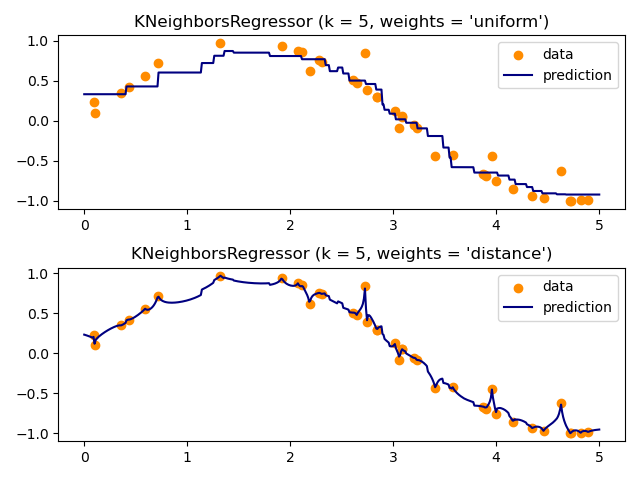
脚本总运行时间: (0 minutes 0.173 seconds)
相关示例
